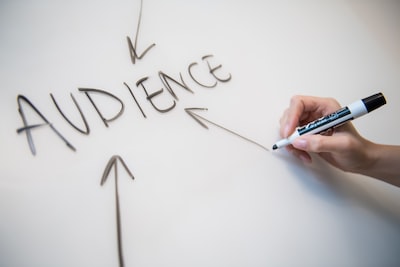Are you a business owner looking for ways to elevate your brand’s visibility and connect with your target audience in a meaningful way? Look no further than event marketing. With the right strategies in place, events can be a powerful tool for increasing brand awareness, driving sales, and fostering customer loyalty.
To help you crack the code and make the most of your event marketing efforts, we’ve compiled a list of top tips and tricks to ensure your next event is a resounding success. From choosing the right venue and engaging with attendees to creating compelling content and measuring your ROI, our comprehensive guide has everything you need to make your event marketing dreams a reality.
So why wait? Dive in and discover how you can take your brand to the next level with our expert event marketing tips.
Table of Contents
Understanding Event Marketing Strategies
We can create unforgettable experiences through strategic planning that resonate with attendees. Event marketing involves knowing the audience, using the right promotional methods, and utilizing digital platforms to reach more people. From social media to email campaigns, we can boost event attendance. It’s important to measure the success of events to identify strengths and areas for improvement. Analyzing metrics like ticket sales, social media interaction, and attendee feedback helps refine our event marketing strategies.
Target Audience Identification
Knowing our ideal attendees helps us customize our messaging and marketing strategies to reach and engage them effectively. Researching demographics, interests, behaviors, and preferences of our target audience will guide us in creating personalized marketing campaigns. By analyzing data from past events, conducting surveys, and using social media insights, we can better understand our audience and create targeted marketing materials.
In addition, identifying our audience goes beyond basic demographics to include their psychographics. This involves their motivations, interests, attitudes, and values. By understanding our audience’s psychographics, we can craft messages that resonate with their emotions and aspirations, attracting and retaining their interest. Tailoring marketing messages to address the desires and concerns of our audience establishes a stronger connection and boosts engagement with our event. Audience identification is key to successful event marketing, allowing us to create captivating narratives that connect with our ideal attendees personally.
Effective Promotional Techniques
Using platforms like Facebook, Instagram, and Twitter helps event marketers reach a wide audience and engage with potential attendees. By posting interesting content, running targeted ads, and interacting with followers, we can boost event visibility and attract more participants. Another effective promotional method is teaming up with influencers or industry experts. Collaborating with influencers who have a sizable following in our event’s niche can create excitement and credibility. Influencers can promote the event to their audience by sharing posts, stories, or hosting live sessions. This partnership not only expands the event’s reach but also brings in attendees who trust the influencer’s recommendations. Leveraging influencer marketing can increase attendance and generate buzz around the event before it even begins.
Utilizing Digital Platforms
Social media platforms like Facebook, Instagram, and Twitter are a great way to reach a wide audience and create excitement around an event. Craft engaging content, use targeted ads, and interact with followers to boost attendance and interest. Email marketing is also effective for promoting events. Create personalized, visually appealing email campaigns to grab recipients’ attention and encourage event registration. Integrating with event management platforms for easy registration and communication can enhance digital promotion. By using the reach and targeting options of digital platforms, we can optimize our promotional efforts and guarantee successful event turnouts.
Measuring Success Metrics
Analyzing key performance indicators (KPIs) such as ticket sales, social media engagement, website traffic, and lead generation can provide valuable insights into campaign performance. By tracking these metrics, event marketers can determine ROI and make data-driven decisions for future events. Additionally, evaluating success metrics allows event organizers to assess the event’s impact on brand awareness, customer engagement, and revenue generation. Assessing metrics like attendee satisfaction, post-event surveys, and post-event follow-up engagement helps marketers gauge overall event success and gather feedback for future enhancements. Implementing a comprehensive approach to measuring success metrics not only validates event performance but also guides strategic planning for upcoming events.
Unforgettable Events with Eminence Events: Taking Your Marketing Strategy to the Next Level
In a bustling city like Singapore, standing out in the competitive market can be a challenge. This is where Eminence Events comes in, with their innovative approach to event marketing.
From product launches to brand activations, they have the expertise and creativity to make your event truly unforgettable. With a keen eye for detail and a passion for creating unique experiences, Eminence Events will ensure that every aspect of your event is carefully curated to make a lasting impact on attendees.
Let them take the stress out of event planning and watch as your brand presence strengthens in the minds of your target audience. With Eminence Events, event marketing has never been simpler.
Frequently Asked Questions
Event marketing is a promotional strategy that involves creating and hosting events to promote a product, service, or brand.
Event marketing is a powerful way to connect with customers, build brand awareness, and generate leads. It allows businesses to engage directly with their target audience in a memorable and impactful way.
To plan a successful event marketing campaign, you should start by defining your goals, identifying your target audience, choosing the right type of event, creating a budget, and promoting your event through various channels.
Some popular types of event marketing activities include trade shows, conferences, seminars, product launches, experiential marketing events, and sponsorships.
You can measure the success of your event marketing campaign by tracking key performance indicators such as attendance numbers, lead generation, social media engagement, and post-event surveys and feedback.
Overview
In conclusion, event marketing is a multifaceted strategy that can greatly benefit businesses of all sizes. By effectively leveraging events to engage with consumers in a meaningful way, companies can increase brand awareness, generate leads, and ultimately drive sales.
From pop-up shops to sponsored concerts, the possibilities for event marketing are endless. However, it is essential for businesses to carefully plan and execute their events to ensure maximum impact.
By understanding their target audience, setting clear objectives, and utilizing the right promotional tactics, companies can simplify event marketing and see tangible results. So, whether you’re a startup looking to make a splash or a well-established corporation aiming to stay relevant, consider incorporating event marketing into your overall strategy for success.
After all, the power of face-to-face interaction and experiential marketing cannot be underestimated in today’s digital age. Cheers to simplifying event marketing and reaping the rewards!






